Tag Archives: summer-flounder
Scientist, legislators voice opposition to fisheries procedures
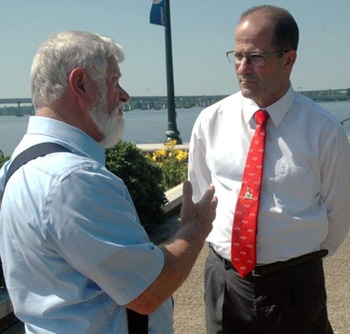 A scientist and two legislators joined the state commercial fishing lobby in state commercial fishing lobby the procedure planned by the N.C. Marine Fisheries Commission for possible changes in regulation of the summer flounder harvest. The fishery, which brought $4.8 million in dockside value to N.C. fishermen last year, is the top commercial fin fish in the state. The North Carolina Fisheries Association held a Monday morning press conference at Union Point Park in New Bern to challenge the use of a supplement approach to the management plan for the flounder. more, >>CLICK TO READ<< 14:21
A scientist and two legislators joined the state commercial fishing lobby in state commercial fishing lobby the procedure planned by the N.C. Marine Fisheries Commission for possible changes in regulation of the summer flounder harvest. The fishery, which brought $4.8 million in dockside value to N.C. fishermen last year, is the top commercial fin fish in the state. The North Carolina Fisheries Association held a Monday morning press conference at Union Point Park in New Bern to challenge the use of a supplement approach to the management plan for the flounder. more, >>CLICK TO READ<< 14:21

MAFMC and the ASMFC vote to screw commercial fishermen
Last week at the Atlantic States Marine Fishery Commission/ Mid Atlantic Fishery Management Council joint meeting these two management bodies voted to steal millions of dollars from the commercial fishing industry by reallocating historical quota from the commercial sector to the recreational sector. The two groups in charge of the management of Scup, Black Sea Bass and Summer Flounder voted to change the historic quotas of these species that were developed in the creation of their original management plan in the early 1990’s and used data from the 1980’s time period. Quota allocation is always a controversial issue whether it is within a fishery sector, [state by state quota] or between commercial and recreational interests. There always seems to be someone dissatisfied with the result. In regard to these three demersal species, the recreational sector was never satisfied with the results of the real data and have tried for over 25 years to change the allocations in their favor. >click to read< 07:25 By Jim Lovgren
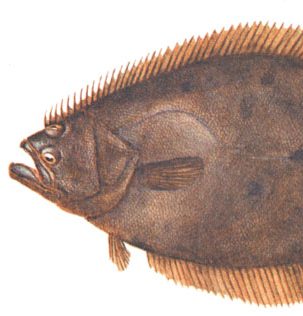
Texas to Suspend Flounder Season as stocks continue to decline throughout the Gulf and South Atlantic
One of the most sought after saltwater fish on the Texas Coast will be off limits to commercial and sport fishermen starting Nov. 1. Citing negative trends and large scale declines in flounder populations over the past several decades, The Texas Parks and Wildlife Department will suspend the year round flounder season during a six-week period ending on Dec. 15.,, The fish’s native range stretches from North Carolina southward into Mexico, and nearly all of the states in this coastal region are witnessing similar population declines. >click to read< 12:30
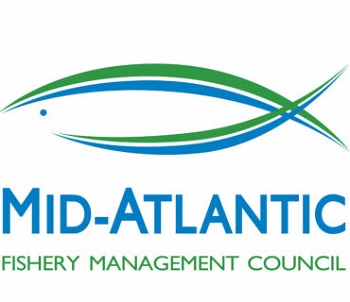
Mass, R.I. Public Hearing: Summer Flounder, Scup, Black Sea Bass Commercial/Recreational Allocation Amendment
Might want to get this out there- it’s going to be important the industry get involved. Tell the Council status quo! Comments may be submitted at any of five virtual public hearings to be held between February 17 and March 2, 2021 or via written comment until March 16, 2021. Wednesday, February 17, 6:00 – 8:00 p.m.: Massachusetts and Rhode Island, Thursday, February 18, New Jersey, Wednesday, February 24, Delaware and Maryland, Monday, March 1, 6:00 – 8:00 p.m.: Virginia and North Carolina, Tuesday, March 2, 6:00 – 8:00 p.m.: Connecticut and New York >click to read< 16:10

With Coronavirus pandemic ravaging our country, temporary relaxation of fishery regulations is urged to help fishing industry
Thanks to our Senators and Congressmen who worked to get specific aid to the fishing industry, that has been hit particularly hard by the closure of restaurants, where 70 per cent of seafood in this country is consumed. Fishermen and wholesalers have had to adapt on the fly and find other ways to market their product to various degrees of success. The closure of so many vital aspects of our domestic economy will have effects that will still be felt a long time after the Virus is tamed.,, I am requesting that NMFS immediately contact the various management councils and commissions to request that special meetings [webinars] of fishery advisory panels be held to discuss the pro’s and cons of this idea, and what fisheries could benefit.,,, By Jim Lovgren. >click to read< 20:48
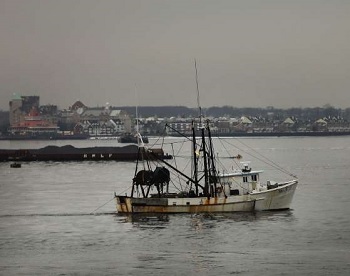
Climate Change Is Sending This Fluke Fight to Court
Disputes over fish quotas are not new, and the $25.2 million East Coast market for fluke—although a reliable bread-and-butter fish—is not particularly lucrative. And New York has sued to alter the quota before. But this lawsuit is being watched closely because it introduces a new factor into the decades-old quota system: the impact of climate change. Quickly warming waters have reshaped the entire fishing industry on the East Coast, moving the fluke dramatically to the north. The lawsuit argues that now 80% of all fluke catches occur within 150 miles of Long Island and that state allocations need to be updated to reflect the fishes’ evolving location. >click to read< 08:17
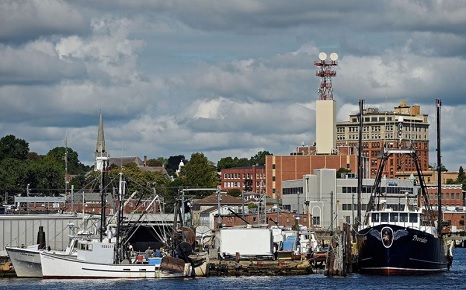
More fluke could be coming for Connecticut fishermen
Last week, the MAFMC and the ASMFC increased the annual coastwide commercial quota for summer flounder for 2019-21 to 11.53 million pounds. While states will continue to receive allocations based on their historic landings up to 9.55 million pounds, landings after that will be divided equally among mid-Atlantic and southern New England states.>click to read<10:33
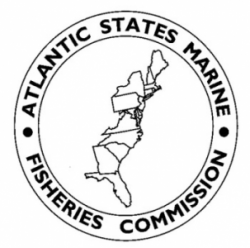
MAFMC/ASMFC Public Hearings on Summer Flounder Commercial Issues Amendment
The Mid-Atlantic Fishery Management Council and Atlantic States Marine Fisheries Commission are seeking public input on a draft amendment to address several potential changes to the management of the commercial summer flounder (fluke) fishery, as well as modifications to the fishery management plan (FMP) goals and objectives for summer flounder. Ten public hearings will be held between September 10 and September 27. Written comments will be accepted through October 12, 2018. >click to read<19:25
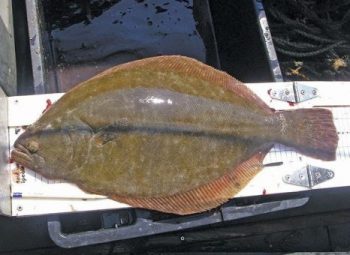
NMFS Weighing Privately Funded Assessment of Summer Flounder Stock
For the first time, the National Marine Fisheries Service (NMFS) will consider privately funded science in formulating regulations for summer flounder. Funded by the Save the Summer Flounder Fishery Fund (SSFFF) and its contributing partners, a groundbreaking sex-structured model created by Dr. Patrick Sullivan of Cornell University was presented in January to the NMFS’ Stock Assessment Workshop in the hope of obtaining a clearer picture of the summer flounder population. The ultimate goal is to improve the accuracy of the next stock assessment,,, >click to read< 23:14

Trump Administration Dives Into Fish Fight
An unprecedented Trump administration decision over the summer that overruled an interstate fishing commission has drawn the ire of critics who worry that keeping a healthy and viable supply of flounder in the Atlantic Ocean is being sacrificed to commercial profits. While the fight over fish largely has been out of the public eye, it has implications for Maryland and other coastal states. In July, Secretary of Commerce Wilbur Ross overruled a recommendation by the Atlantic States Marine Fisheries Commission finding New Jersey out of compliance with proposed 2017 harvest limits of summer flounder along the Atlantic coast. click here to read the story 15:28
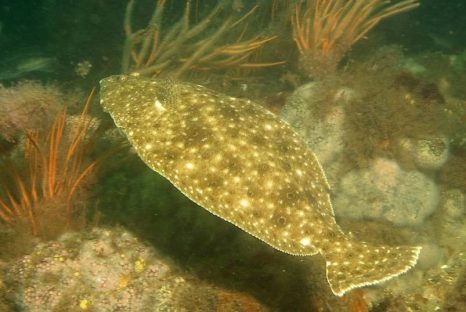
Floundering with the Fishcrats
Right now just three miles from Long Island’s beaches boats are dragging fluke, or “summer flounder”, as is their official title. These boats are from several regional states, among them New York. Most are fishing under Southern state “flags”, as it were, as these states have the biggest quota shares and therefore the biggest daily limits. Each boat will have to steam to a port in the state of the landing permit it is working under to off load and sell the catch. This fishing here has been going on this way for many decades, but it hasn’t been until recent years that boats had to sail the flatfish hundreds of miles to sell them. Bringing them within New York’s boundaries constitutes a serious violation of New York State Department of Environmental Conservation Law, with potential felony convictions with huge fines, loss of license and vessel, and jail time. click here to read the story 09:02
2017 Sweep Efficiency Study Targets Summer Flounder – Cooperative research program effort reveals a few surprises
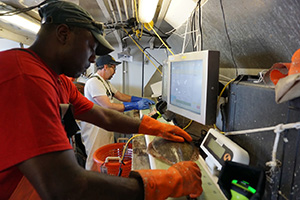 Testing the efficiency of different sweep types on fishing nets was the focus of twin trawling operations August 18-28 aboard the F/V Karen Elizabeth from Point Judith, RI. Chris Roebuck and his four-person crew aboard the 78-foot western-rigged stern trawler Karen Elizabeth conducted this year’s study with five staff members from the NEFSC’s Northeast Cooperative Research Program and the Fisheries Ecology and Oceans and Climate branches. The team targeted summer flounder in Southern New England from Montauk, Long Island to Nantucket and red hake in the western Gulf of Maine off Cape Ann, making a total of 103 good tows and collecting over 73,000 fish from species targeted by the study. click here to read the story 11:41
Testing the efficiency of different sweep types on fishing nets was the focus of twin trawling operations August 18-28 aboard the F/V Karen Elizabeth from Point Judith, RI. Chris Roebuck and his four-person crew aboard the 78-foot western-rigged stern trawler Karen Elizabeth conducted this year’s study with five staff members from the NEFSC’s Northeast Cooperative Research Program and the Fisheries Ecology and Oceans and Climate branches. The team targeted summer flounder in Southern New England from Montauk, Long Island to Nantucket and red hake in the western Gulf of Maine off Cape Ann, making a total of 103 good tows and collecting over 73,000 fish from species targeted by the study. click here to read the story 11:41

Trump official’s flounder ruling clouds Atlantic coast fish conservation
No one considers summer flounder an iconic Bay species. But fishery managers and conservationists say the ripple effect of a controversial Trump administration decision to let more “fluke” be caught in New Jersey may impact how important species such as striped bass and menhaden are managed in the Chesapeake. In the wake of an unprecedented decision by the U.S. Department of Commerce, some in Maryland are already calling on fishery managers to challenge how coastwide fishing restrictions are implemented in the Bay. The concern stems from a July ruling by Commerce Secretary Wilbur Ross that allowed New Jersey to reject harvest limits accepted by all other East Coast fishery managers, which were aimed at stemming a seven-year decline in the summer flounder population. In recent decades, states had appealed similar harvest cutbacks ordered by the Atlantic States Marine Fisheries Commission 22 times. Never before had the commerce secretary overturned a decision by the interstate panel. click here to read the story 08:47

Warming oceans: fish on the move
The oceans are getting warmer, and fish are adapting to rising ocean temperatures with their fins and swimming to waters that better suit their temperature preferences. Shifts in the distribution of important coastal fish species are resulting in changes to historical fishing options, new fishing opportunities and new fisheries management challenges.,, These northern shifts in fish populations have presented fisheries management challenges. Coastwide or regional Fisheries Management Plans (FMPs) are used to manage all of these species, but these FMPs have not always kept up with the changing distribution of these species. Take summer flounder and black sea bass as examples. click here to read the story 10:51
Jim Lovgren – Fishery managers responsible for Summer Flounder mismanagement
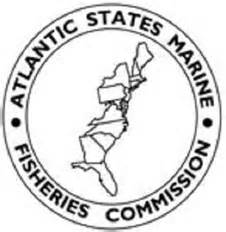 Earlier this year the state of New Jersey was found to be out of compliance by the Atlantic States Marine Fishery Commission [ASMFC] in regard to the proposed recreational catch specifications for Summer Flounder, [fluke].The ASMFC which jointly manages summer flounder with the Mid Atlantic Fishery Management Council, [MAFMC] had recommended an increase in the recreational size limit for Summer Flounder to 19 inches for New Jersey. New Jersey fishery management representatives balked at that proposal and instead presented an alternative proposal that would keep the size limit at the present 18 inches but with a shorter season which would still meet the conservation goals as the Commission’s plan. The Commission denied this alternative and declared New Jersey out of Compliance, an action that would result in the shutdown of the Summer Flounder fishery, both recreational and commercial sometime later this summer. Unfairly this shutdown would have occurred after the recreational season was over, and would only impact New Jersey’s commercial fishermen, who are already struggling with a 50% cut back in the quota over the last two years click here to read the story 11:32
Earlier this year the state of New Jersey was found to be out of compliance by the Atlantic States Marine Fishery Commission [ASMFC] in regard to the proposed recreational catch specifications for Summer Flounder, [fluke].The ASMFC which jointly manages summer flounder with the Mid Atlantic Fishery Management Council, [MAFMC] had recommended an increase in the recreational size limit for Summer Flounder to 19 inches for New Jersey. New Jersey fishery management representatives balked at that proposal and instead presented an alternative proposal that would keep the size limit at the present 18 inches but with a shorter season which would still meet the conservation goals as the Commission’s plan. The Commission denied this alternative and declared New Jersey out of Compliance, an action that would result in the shutdown of the Summer Flounder fishery, both recreational and commercial sometime later this summer. Unfairly this shutdown would have occurred after the recreational season was over, and would only impact New Jersey’s commercial fishermen, who are already struggling with a 50% cut back in the quota over the last two years click here to read the story 11:32
Trump administration steps in on fishing limits, and the implications could ripple
 “The commission is deeply concerned about the near-term impact on our ability to end overfishing on the summer flounder stock as well as the longer-term ability for the commission to effectively conserve numerous other Atlantic coastal shared resources,” Douglas Grout, the commission’s chair, said in a statement. “New Jersey makes a compelling argument that the measures it implemented this year, despite increasing catch above the harvest target, will likely reduce total summer flounder mortality in New Jersey waters to a level consistent with the overall conservation objective,” Chris Oliver, assistant administrator of fisheries at NOAA, wrote the commission in a letter on behalf of Ross. The move infuriated commissioners and fishing officials throughout the area, as well as the region’s NOAA officials. “Ross was brilliant in his decision,” said Jim Donofrio, executive director of the Recreational Fishing Alliance in New Jersey, which represents thousands of recreational fishermen across the country. “The Trump administration has challenged a broken fishery management system in this country, and I applaud them for doing it.” click here to read the story 10:10
“The commission is deeply concerned about the near-term impact on our ability to end overfishing on the summer flounder stock as well as the longer-term ability for the commission to effectively conserve numerous other Atlantic coastal shared resources,” Douglas Grout, the commission’s chair, said in a statement. “New Jersey makes a compelling argument that the measures it implemented this year, despite increasing catch above the harvest target, will likely reduce total summer flounder mortality in New Jersey waters to a level consistent with the overall conservation objective,” Chris Oliver, assistant administrator of fisheries at NOAA, wrote the commission in a letter on behalf of Ross. The move infuriated commissioners and fishing officials throughout the area, as well as the region’s NOAA officials. “Ross was brilliant in his decision,” said Jim Donofrio, executive director of the Recreational Fishing Alliance in New Jersey, which represents thousands of recreational fishermen across the country. “The Trump administration has challenged a broken fishery management system in this country, and I applaud them for doing it.” click here to read the story 10:10
Garden State officials make their case to feds as fluke battle rages on
With New Jersey’s summer flounder fishing industry on the line, Garden State officials made their case to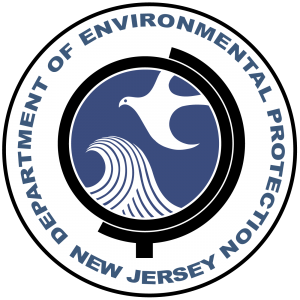 fisheries on Tuesday afternoon. In a hearing with the federal agency, New Jersey Department of Environmental Protection officials argued that the state’s regulations for summer flounder (or fluke) fishing reach conservation equivalency with new federal regulations. The cornerstone of New Jersey’s argument: That the state’s proposed regulations will actually preserve more of the summer flounder stock than the measures being put forth by the feds. Tuesday’s call was closed to the press, but in a statement following the call NJDEP spokesperson Bob Considine described it as a “good discussion.” click here to read the story 08:37
fisheries on Tuesday afternoon. In a hearing with the federal agency, New Jersey Department of Environmental Protection officials argued that the state’s regulations for summer flounder (or fluke) fishing reach conservation equivalency with new federal regulations. The cornerstone of New Jersey’s argument: That the state’s proposed regulations will actually preserve more of the summer flounder stock than the measures being put forth by the feds. Tuesday’s call was closed to the press, but in a statement following the call NJDEP spokesperson Bob Considine described it as a “good discussion.” click here to read the story 08:37
New Jersey continues to fight summer flounder cuts
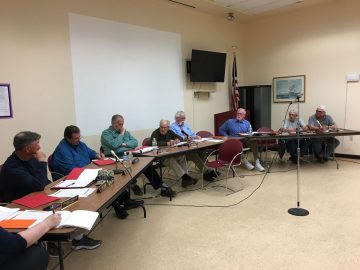 New Jersey’s fight against approved summer flounder measures hangs in the balance, and a meeting next month could prove critical for flounder fishermen. The state’s Marine Fisheries Council met Thursday evening at the Galloway Township branch of the Atlantic County Library in part to discuss its strategy in opposing a federal regulatory commission’s decision to cut this year’s summer flounder catch by 30 percent. “I’m getting questions every day,” said Dick Herb, the council’s chairman. “We just don’t know what’s going to happen there.” There’s a lot of things going on behind the scenes,” he added. Earlier this year, the state council voted to go out of compliance with the federal measures, which could trigger a pivotal decision by new Commerce Secretary Wilbur Ross following a federal regulatory meeting in May, Herb said. click here to read the story 09:54
New Jersey’s fight against approved summer flounder measures hangs in the balance, and a meeting next month could prove critical for flounder fishermen. The state’s Marine Fisheries Council met Thursday evening at the Galloway Township branch of the Atlantic County Library in part to discuss its strategy in opposing a federal regulatory commission’s decision to cut this year’s summer flounder catch by 30 percent. “I’m getting questions every day,” said Dick Herb, the council’s chairman. “We just don’t know what’s going to happen there.” There’s a lot of things going on behind the scenes,” he added. Earlier this year, the state council voted to go out of compliance with the federal measures, which could trigger a pivotal decision by new Commerce Secretary Wilbur Ross following a federal regulatory meeting in May, Herb said. click here to read the story 09:54
NJ asks feds to drop limits on summer flounder
 With their rows of sharp buck teeth, their downturned mouths, and both eyes on one side of their curiously flat bodies, summer flounder might seem beautiful only to one another. But this delicately flavored flatfish is the pinup girl, the heart’s desire, of thousands of New Jersey’s recreational fishermen — and has long been the source of many millions of dollars in tourism revenue each summer. For that reason the state has petitioned a federal commission to reverse its new restrictions on catching summer flounder in state waters in 2017. click to continue reading the story 07:06
With their rows of sharp buck teeth, their downturned mouths, and both eyes on one side of their curiously flat bodies, summer flounder might seem beautiful only to one another. But this delicately flavored flatfish is the pinup girl, the heart’s desire, of thousands of New Jersey’s recreational fishermen — and has long been the source of many millions of dollars in tourism revenue each summer. For that reason the state has petitioned a federal commission to reverse its new restrictions on catching summer flounder in state waters in 2017. click to continue reading the story 07:06
Measuring flounder a complex undertaking with a big impact
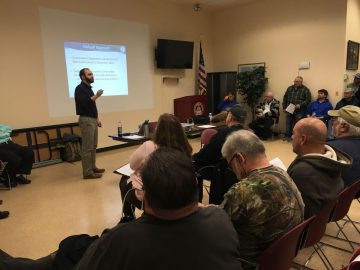 It’s likely few people have written more about summer flounder than Mark Terceiro. Terceiro has published a 44-page journal article about the science, politics and litigation surrounding the species from 1975 to 2000. A 32-page follow-up covered the period from 2001 to 2010, and another article regarding developments in recent years is in the works. But it’s Terceiro’s summer flounder stock assessment update, released by the National Oceanic and Atmospheric Administration in December, that has him in the crosshairs of New Jersey politicians and recreational fishing leaders. Terceiro, a research fishery biologist at NOAA’s Northeast Fisheries Science Center, said a lot of information goes into a stock assessment. “The catch is, from both commercial and recreational, very important — that it be accurate,” Terceiro added. “We try — the government, the states — (to) go to great lengths to make sure the catch reports are as accurate as they can get.” continue reading the article here 09:20
It’s likely few people have written more about summer flounder than Mark Terceiro. Terceiro has published a 44-page journal article about the science, politics and litigation surrounding the species from 1975 to 2000. A 32-page follow-up covered the period from 2001 to 2010, and another article regarding developments in recent years is in the works. But it’s Terceiro’s summer flounder stock assessment update, released by the National Oceanic and Atmospheric Administration in December, that has him in the crosshairs of New Jersey politicians and recreational fishing leaders. Terceiro, a research fishery biologist at NOAA’s Northeast Fisheries Science Center, said a lot of information goes into a stock assessment. “The catch is, from both commercial and recreational, very important — that it be accurate,” Terceiro added. “We try — the government, the states — (to) go to great lengths to make sure the catch reports are as accurate as they can get.” continue reading the article here 09:20
N.J. Reps LoBiondo and Pallone talk tough, announce legislation to prevent absurd summer flounder quotas
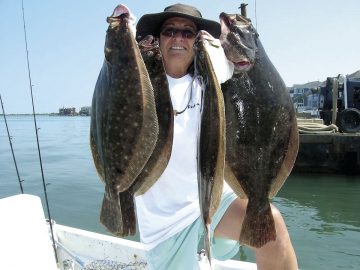 Reps. Frank LoBiondo and Frank Pallone on Thursday, Feb. 23 announced plans to introduce new legislation to prevent the National Oceanic and Atmospheric Administration 2017 and 2018 summer flounder quotas for recreational and commercial fishing from going into effect. In a press release, Pallone and LoBiondo said the rules would do damage to the economies of coastal communities and the state. Under the NOAA quotas, the allowed summer flounder catch for recreational and commercial fishing were both reduced by approximately 30 percent in 2017 and 16 percent in 2018. The Pallone-LoBiondo legislation would maintain the 2016 quota levels and require that NOAA conduct a new assessment before issuing new quotas. Continue reading the story here 07:31
Reps. Frank LoBiondo and Frank Pallone on Thursday, Feb. 23 announced plans to introduce new legislation to prevent the National Oceanic and Atmospheric Administration 2017 and 2018 summer flounder quotas for recreational and commercial fishing from going into effect. In a press release, Pallone and LoBiondo said the rules would do damage to the economies of coastal communities and the state. Under the NOAA quotas, the allowed summer flounder catch for recreational and commercial fishing were both reduced by approximately 30 percent in 2017 and 16 percent in 2018. The Pallone-LoBiondo legislation would maintain the 2016 quota levels and require that NOAA conduct a new assessment before issuing new quotas. Continue reading the story here 07:31
Commission Cuts Summer Flounder leaving New Jersey leaders fuming
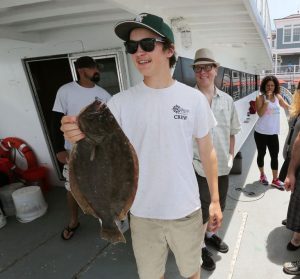 The Commission voted Thursday to reduce this year’s summer flounder catch, leaving New Jersey leaders fuming and vowing to take action. It’s a move many in the state believe could devastate the recreational fishing industry at the Jersey Shore by tightening size and bag limits on the fish.,,At its meeting in Virginia, the Atlantic States Marine Fisheries Commission chose Option 5, which implements reductions between 28 percent and 32 percent the length of the coast. All other options included in the plan would have mandated a 41 percent cut. Federal experts have argued the reductions are necessary to preserve the stock. At a public hearing last month in Galloway Township, Kirby Rootes-Murdy, a senior fishery management plan coordinator at ASMFC, said the flounder stock is in “an overfishing situation.” Read the story here 21:00
The Commission voted Thursday to reduce this year’s summer flounder catch, leaving New Jersey leaders fuming and vowing to take action. It’s a move many in the state believe could devastate the recreational fishing industry at the Jersey Shore by tightening size and bag limits on the fish.,,At its meeting in Virginia, the Atlantic States Marine Fisheries Commission chose Option 5, which implements reductions between 28 percent and 32 percent the length of the coast. All other options included in the plan would have mandated a 41 percent cut. Federal experts have argued the reductions are necessary to preserve the stock. At a public hearing last month in Galloway Township, Kirby Rootes-Murdy, a senior fishery management plan coordinator at ASMFC, said the flounder stock is in “an overfishing situation.” Read the story here 21:00
Van Drew Measure Asks President to Reject Summer Flounder Catch Reduction
 A measure sponsored by Senator Jeff Van Drew and Bob Smith urging President Donald Trump to reject the proposed reduction in the summer flounder catch limit – an action that would have a drastic impact on fishing in New Jersey and the economy – and urging the National Oceanic and Atmospheric Administration to conduct a new summer flounder assessment was approved today by the Senate Environment and Energy Committee. “We are very concerned about the decision to move forward with a catch reduction. That fact that it was based on faulty data only adds insult to injury,” said Senator Van Drew (D-Cape May, Cumberland, Atlantic.) “We are urging the President to reject this dramatic change that will have a real negative effect on both the fishing industry and our economy and asking for a new assessment before any new catch quota is implemented.” Read the story here 09:15
A measure sponsored by Senator Jeff Van Drew and Bob Smith urging President Donald Trump to reject the proposed reduction in the summer flounder catch limit – an action that would have a drastic impact on fishing in New Jersey and the economy – and urging the National Oceanic and Atmospheric Administration to conduct a new summer flounder assessment was approved today by the Senate Environment and Energy Committee. “We are very concerned about the decision to move forward with a catch reduction. That fact that it was based on faulty data only adds insult to injury,” said Senator Van Drew (D-Cape May, Cumberland, Atlantic.) “We are urging the President to reject this dramatic change that will have a real negative effect on both the fishing industry and our economy and asking for a new assessment before any new catch quota is implemented.” Read the story here 09:15
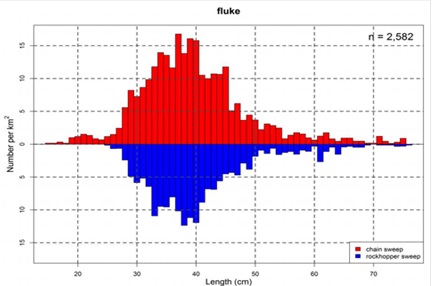
Nils Stolpe – Summer Flounder Management – Can it get any worse?
Summer flounder, also known as fluke, support recreational and commercial fisheries that are among the most important in the mid-Atlantic and southern New England. They have been a mainstay of recreational fishermen either from their own boats or on for-hire vessels, support a large directed commercial fishery, their incidental harvest is important in other fisheries and they are near the top of the list of must-have meals for summer visits to the shore. Hundreds of party and charter boats depend on them for all or for part of their annual incomes, thousands of private boats seek them out every summer, and much of the business bait and tackle shops do every year depends on the fishery. Hundreds of commercial fishing boats target them or take them incidentally in other fisheries.,, The summer flounder stock has gone from having the highest biomass in 50 years to being on the verge of overfishing in the five years between 2011 and 2016. While no one seems to know why the management program hadn’t been working, the SSC did come up with several possibilities. These included “sources of (fishing) mortality that are not fully accounted in the assessment. These could include under-estimation of discards in both the commercial and recreational fisheries and lower estimates of mortality rates applied to the discards than are actually occurring.” Read the full article here 15:27
MAFMC and ASMFC Actions on Black Sea Bass, Bluefish, Scup and Summer Flounder
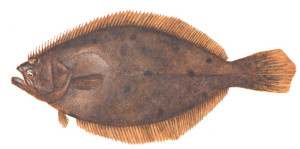 Last week the Mid-Atlantic Fishery Management Council (Council) and the Atlantic States Marine Fisheries Commission (Commission) reviewed previously implemented specifications for scup, black sea bass and bluefish fisheries and modified specifications for summer flounder. The Commission’s actions are final and apply to state waters. The Council will forward its federal waters recommendations regarding summer flounder specifications to NOAA Fisheries Greater Atlantic Regional Fisheries Administrator for final approval. For summer flounder, both groups approved a commercial quota of 5.66 million pounds and a recreational harvest limit of 3.77 million pounds for 2017, an approximate 30% decrease from 2016. This decrease in catch and landings limits responds to the findings of the 2016 stock assessment update, which indicates summer flounder has been experiencing overfishing since 2008. Read the rest here 12:06
Last week the Mid-Atlantic Fishery Management Council (Council) and the Atlantic States Marine Fisheries Commission (Commission) reviewed previously implemented specifications for scup, black sea bass and bluefish fisheries and modified specifications for summer flounder. The Commission’s actions are final and apply to state waters. The Council will forward its federal waters recommendations regarding summer flounder specifications to NOAA Fisheries Greater Atlantic Regional Fisheries Administrator for final approval. For summer flounder, both groups approved a commercial quota of 5.66 million pounds and a recreational harvest limit of 3.77 million pounds for 2017, an approximate 30% decrease from 2016. This decrease in catch and landings limits responds to the findings of the 2016 stock assessment update, which indicates summer flounder has been experiencing overfishing since 2008. Read the rest here 12:06
Summer flounder’s new status from “viable” to “concern”reduces allowable catch
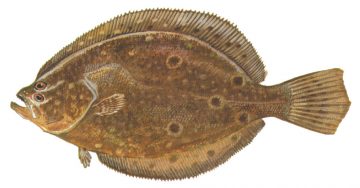 The stock status of most coastal fish did not change in the 2016 N.C. Division of Marine Fisheries Stock Status Report, but one species was reclassified from the 2015 report. Summer flounder moved from “viable” to “concern” based on a 2015 National Marine Fisheries Service Northeast Fisheries Science Center benchmark stock assessment for U.S. waters north of Cape Hatteras. The assessment indicated the stock of summer flounder was not overfished but overfishing was occurring, according to a NCDMF news release. As a result of the stock assessment, federal fisheries authorities lowered the allowable biological catch by 29 percent, which lowered the state-by-state commercial quotas proportionately. North Carolina receives the highest commercial quota share at 27.4 percent. Read the rest here – Read NCDMR Stock Assessment here 14:51
The stock status of most coastal fish did not change in the 2016 N.C. Division of Marine Fisheries Stock Status Report, but one species was reclassified from the 2015 report. Summer flounder moved from “viable” to “concern” based on a 2015 National Marine Fisheries Service Northeast Fisheries Science Center benchmark stock assessment for U.S. waters north of Cape Hatteras. The assessment indicated the stock of summer flounder was not overfished but overfishing was occurring, according to a NCDMF news release. As a result of the stock assessment, federal fisheries authorities lowered the allowable biological catch by 29 percent, which lowered the state-by-state commercial quotas proportionately. North Carolina receives the highest commercial quota share at 27.4 percent. Read the rest here – Read NCDMR Stock Assessment here 14:51
Atlantic States Marine Fisheries Commission approves NJ option for summer flounder
New Jersey is one step closer to becoming its own summer flounder management region. The  unanimously approved an option Tuesday during their winter meetings in Virginia to allow for a New Jersey/Delaware Bay management region. It would pull the state out of its present management region which it shares with Connecticut and New York.The New Jersey Marine Fisheries Council must now vote to adopt the measure. The council’s next meeting is March 3. Read the rest here 19:21
unanimously approved an option Tuesday during their winter meetings in Virginia to allow for a New Jersey/Delaware Bay management region. It would pull the state out of its present management region which it shares with Connecticut and New York.The New Jersey Marine Fisheries Council must now vote to adopt the measure. The council’s next meeting is March 3. Read the rest here 19:21








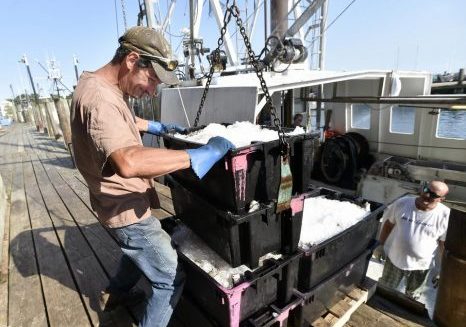





























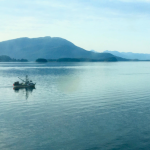

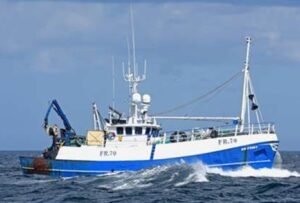
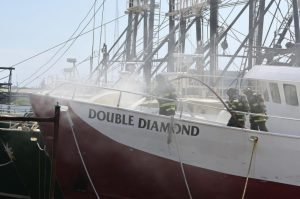



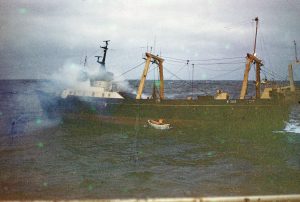








Public Hearings for Summer Flounder, Scup, and Black Sea Bass Commercial/Recreational Allocation Amendment
The Mid-Atlantic Fishery Management Council (Council) and the Atlantic States Marine Fisheries Commission (Commission) are seeking public comment on the Summer Flounder, Scup, and Black Sea Bass Commercial/Recreational Allocation Amendment. Comments may be submitted at any of five virtual public hearings to be held between February 17 and March 2, 2021 or via written comment until March 16, 2021. >click to read, click for links< 12:41
Share this post